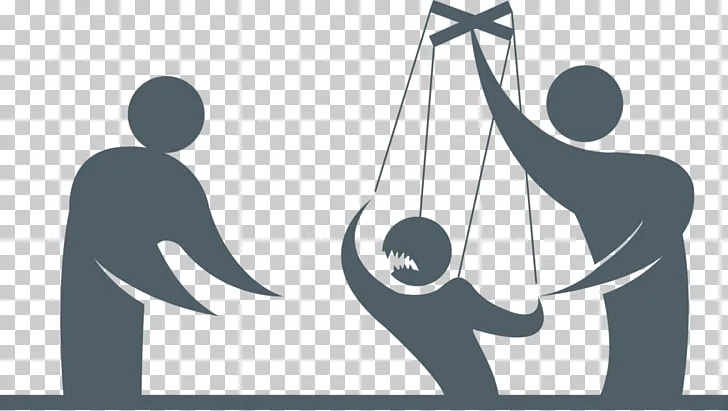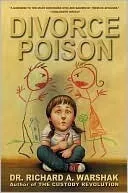The Problem with Family Court Social Science
Katrina Borthwick - 28th October 2025

A research paper published in February 2025 by Carrie Leonetti from the University of Auckland (UoA) School of Law looked at how judges, lawyers and psychologists use social science research in the New Zealand Family Court. This was published in the Indiana Health Law Review. In the abstract it states:
This project documents how judges, lawyers, and psychologists in the New Zealand Family Court possess a simplistic, uninformed, and biased understanding of social-science research that has contributed to their reliance on distorted and folkloric beliefs about the state of “the literature.” A comprehensive review of Family Court cases under the New Zealand Care of Children Act 2004 reveals a systemic misunderstanding and misuse of actual and purported social-science evidence by court personnel. The research reveals that, in most cases in which lawyers, judges, or psychologists in the court referred to purported academic research or social-science literature, the description of the literature was inaccurate and the application invalid.
There’s quite a bit of ‘burn’ in that. I needed to know more about where this was coming from.
About the author
Leonetti is a legit Associate Professor at the UoA, and according to their website she is an internationally recognised expert on the intersection of science and the law. She has weighed in on the Tom Phillips case in October (the man who went bush with his three children), talking about the failure of the family Court to keep victims safe. There, she directly referenced the Backbone Collective - a group of volunteers who reported on the family court system in 2017. I haven’t done much digging on them, but they didn’t have very nice things to say. You can read their full report based on survey responses here.
Leonetti has completed other research criticising the New Zealand Family Court, including the need for regulation of psychologists appearing in the Family Court, the disregard or disbelief of children’s views in parenting orders, and interestingly a paper titled “Spectral Evidence: A Comparison of Evidence of Witchcraft in the Salem Witch Trials and Evidence of Parental Alienation in the New Zealand Family Court”. That last one has an intriguing title, and is dated February 2025 - but unfortunately does not appear to have been published yet. The abstract says that it “compares the practices of proof and procedure in the Salem witch trials with the practices of proof and procedure in custody proceedings in the New Zealand Family Court. It argues that there are striking parallels between the trials of accusations of witchcraft in Salem and proceedings involving accusations of “parental alienation” in the Family Court today”. Phew!
She was also the author of other newsroom articles on similar topics 2023.
As you would have gathered, Leonetti’s research focuses on miscarriages of justice, scientific evidence, forensic psychiatry, and the role that human factors play in the decision making of judges, juries, and lawyers.
I was left in a weird place where I was interested in the findings, but also curious about the legitimacy of the author, given the emotive tone coming through in some of her material. It was setting off a few red flags in my mind. The paper I am writing about here is based on a small number of cases that went to court and were published, but with that caveat in mind, which she notes up front, her findings do appear to stand up. They are also consistent with themes coming from other sources. I suspect it is tricky to work in such a field without having strong opinions and really caring about the outcomes.
The findings
Leonetti’s paper is a long one, almost 70 pages, and digs into the details on 29 cases to pull together her findings. From what I can see she makes four key findings, that in the cases she studied the courts: used vague or unreferenced “research” claims; showed bias in what literature was cited; used recurring favourite sources that lack clear scientific validity, and; that there was lack of genuine peer-reviewed social-science sources to draw on.
So, what does this look like in her data? Well, 83% of the cases that referenced literature did so in a nonspecific way, such as referring to “the literature” or saying “studies show”. The people most likely to be citing literature were Psychologists (55%) followed by judges (20%).
Where literature was cited with regards to family violence, 77% of the references were in favour of a perpetrator, weakening the victim’s claims. With regards to ‘parental alienation’, 67% supported the construct of ‘parental alienation’.

Parental Alienation
It’s appropriate here to take a bit of a deviation to explain what is going on with ‘parental alienation’. ‘Parental alienation’ is where a child becomes estranged from one parent, as a result of psychological manipulation by another parent. However, the psychological community has not accepted ‘parental alienation’ as a diagnosable condition. The sorts of behaviours described are common in family conflict, but parental estrangement is rare. Concerningly this construct may also be misused by an abusive parent who has become estranged to gain custody on the basis that they have been ‘alienated’.
In her submission on the review of the Evidence Act 2006 (Submission to Regulate the Junk Science of “Parental Alienation”), Leonetti points out that many separated parents resolve child-care arrangements amicably. Only a small portion end in litigation, and those tend to involve a perpetrator of family violence and a victim. In these high conflict cases, Leonetti says the family courts don’t do a good job of picking up on family violence, and often over‐emphasise the risk of false allegations, leading to victims being treated poorly.
She also points to a New Zealand case where the child’s rejection of a parent (who had a history of violence) was attributed by the expert to the other parent’s ‘alienating behaviour’. In the judgment, the expert states the child “was displaying symptoms of ‘parental alienation’ because the child held consistently positive views of the father and negative views of the mother, and the mother was claimed to be “undermining” the father”. In that particular case, the mother had documented histories of physical and psychological abuse of the child, but the psychologist discounted those and attributed the child’s views instead to ‘alienation’. Leonetti calls this typical ‘syndrome reasoning’, where the expert assumes the child’s view must be caused by the protective parent’s ‘alienating’ actions, rather than considering the possibility of the rejected parent’s abuse or the child’s fear. The case demonstrates how the ‘literature’ of parental alienation is used to justify forced contact or reduce a protective parent’s role, even though the underlying research is not sound.
According to Leonetti ‘alienation’ is often applied as if it were a ‘syndrome’, that is a cluster of symptoms leading to a hidden cause, where (a) the symptoms are non-specific, (b) the causation is inferred rather than demonstrated, and (c) there are no standardised protocols, known error-rates or reliable tests.
People are making money off this. In the US there are several programmes applying ‘reunification therapy’ to address parental alienation. They usually ban contact with the protective parent, and essentially engage in brain washing.
The American Psychological Association, the Association of Clinical Psychologists – UK and the New Zealand Psychological Society (NZPsS) have all said that parental alienation syndrome lacks scientific validation. The World Health Organization has never recognised parental alienation as a diagnosis, and instead says it is a ‘judicial term’ and there are “no evidence-based health care interventions specifically for parental alienation”.
In their 2015 submission on the Review of Family Violence Law, the NZPsS said that:
It is a deep concern and a major threat to the safety of women and children that the New Zealand Family Court continues to apply the doctrine of Parental Alienation Syndrome, which has long been discredited in the United States, from where it originated.
It is now accepted in the United States that there is no scientific evidential basis for Parental Alienation Syndrome. No research conducted in the United States has ever been able to produce valid evidence of Parental Alienation Syndrome.
Parental Alienation Syndrome is a term coined by Richard Gardner in the United States in the early 1980s. The term achieved influence, and the so-called syndrome began to be applied in courts making decisions about the care of children after Gardner widely circulated his book about the so-called syndrome among judges and lawyers. Gardner subsequently “trained” thousands of judges and lawyers, both in the United States and in New Zealand. He claimed that the vast majority of children who reported sexual abuse were fabricating what they said, and had been alienated and coached by their mothers.
As early as 1993, research in the United States questioned the existence of Parental Alienation Syndrome. More than 500 studies have now been conducted into Parental Alienation Syndrome, and not one of them has been able to reproduce the eight characteristics claimed by Gardner. Gardner’s books were all self-published, and none was peer reviewed. His books were not based on research.
The American Psychological Association’s Presidential Task Force on Violence and the Family in 1996 reported that many mothers were losing custody cases in which there were concerns about domestic violence because abusive fathers were able to convince the court that the mothers were engaged in alienating behaviours. This tragic and frightening outcome continues to happen to this day in the Family Court in New Zealand: judges are dismissing and ignoring reports of violence by women and children, on the grounds that these are fabrications designed to alienate the children from their father.
Gardner’s recommendations were that the mother reporting violence and abuse should be encouraged to stay with the abusive father; she should be helped over her “anger”; and the child should be placed in the father’s care in cases of separation.
In cases where women and children report abuse and violence, the application of Parental Alienation Syndrome means that children are threatened with being removed from their mother’s care if they persist with their reports of abuse; mothers are threatened with having children removed from their care if they continue to report; and judges in some cases have placed the children in the care of the abusive parent and even gone so far as to cut off contact with the protective parent.
Bancroft & Silverman’s research reported that families with “the greatest degree of psychological health among mothers and children appear to be among those most vulnerable to being labelled as having “parental alienation.”” This is because the children have a secure attachment to the protective parent and – completely rationally and understandably – reject outright the abusive behaviour of the batterer on separation. However, instead of the courts and professionals listening to the women and children, their reports of violence and abuse are dismissed as false complaints arising from alienation.
PAS versus PA
On this, there seems to be a differentiation made between ‘parental alienation syndrome’ and ‘parental alienation’. ‘Parental alienation’ is the broader process of a child being psychologically manipulated to reject one parent, while parental alienation syndrome (PAS) is the specific set of behaviors and symptoms a child exhibits as a result of that manipulation. In other words, an attempt to diagnose from the child’s behaviour, rather than from what the parent has done.
My observation is the syndrome approach portrayed in some of the media seems to veer into pointing to everyday sorts of behaviours in lower conflict situations. I expect in a situation where there is a separation, it is going to take a deliberate effort not to ever say something negative about one’s ex in front of the kids, and some people probably don’t manage to filter it all out. I am not denying that this can cause problems, but this is not at the level where you would expect kids to be taken away from the parent. There seems to be a jumble of information online that villainises this lower level of behaviour, and encourages parents to go hunting for signs of it.

Favoured sources
Reinforcing some of the ‘junk science’ is the fact that where authors were quoted in the cases observed, it was usually the same few people - Richard Warshak, Amy Baker, Barbara Jo Fidler and Nicholas Bala. According to Leonetti, none of these people have ever produced peer-reviewed work, and none of them are empirical scientists working in mainstream academic psychology. I looked these people up to see if there was any truth to it, and it really looks like a flagrant case of people making money off of this idea.
Richard Warshak is a psychologist and author, and he has a website in his own name selling divorce and parental alienation books, including ‘Divorce Poison: How To Protect Your Family From Bad-mouthing and Brainwashing’. He was also involved in developing the ‘Family Bridges’ workshop programmes for children and rejected parents, which led to children being forced to participate in the programme and, in some cases, live with the rejected parent on the assumption that their rejection is unreasonable.
Amy Baker has a Ph.D. in developmental psychology and a website in her own name which, right at the top of the page under her name, says “Parental Alienation Coach, Researcher, Author”. She offers telephone coaching for ‘targeted parents’ for US$240 an hour. She is also trying to sell the 10 books she has written, including titles like “surviving parental alienation: a journey of hope and healing”. Her website says she has written over 120 academic articles.
Barbara Jo Fidler is a clinical psychologist and co-author on a few books and research papers, including ones talking about parental alienation. She also seems to have written, or had her parental alienation content used for, the ‘men and families’ website that supports fathers, men and boys. The concept of parental alienation does seem to have been adopted by a number of men’s support organisations, including New Zealand’s MENZ group (see Mark’s article for more). My very unscientific internet search for women’s support groups promoting the construct of ‘parental alienation’ came up with nothing, but I did get hits criticising it.
The final source, Nicholas Bala, is a Canadian law expert (LLM from Harvard), with a focus on parental separation issues including, you guessed it, parental alienation.
Not enough research
According to Leonetti, part of the reason these four keep getting drawn on so heavily is that there is just not enough genuine peer-reviewed social science research out there to cite. She found that at no time in her 29 cases did anyone draw on mainstream peer-reviewed science. Instead she saw, in order of popularity: law-journal articles, interdisciplinary law/psychology journals, psychology theory journals, seminar/training materials, popular-press books, and a psychiatry textbook.
When Leonetti dug down into the references to the research, she found sweeping generalisations where the research had been held up to as an established universal truth (e.g., “studies show that all children are better off …”, “children under three cannot remember …”). One example is the claim that children under age three cannot form memories, and another is the claim that shared parenting is always best - neither of which aligns with science.
On this point, the 2015 NZPsS submission mentioned above, they list a number of ‘truths’ around ‘situational violence’ that they say are not supported by any evidence:
- Intimate partner violence has no correlation with child abuse and unfit parenting.
- What happens between the parents does not affect the children.
- A woman must facilitate access to the children’s father regardless of danger.
- If the woman has sought physically to defend herself from violence by the father, the case is one of mutual violence and violence should accordingly be disregarded as an issue.
- Maximum contact with both parents is essential and beneficial for all children.
Further they state:
“… there is no such thing as ‘situational violence’. Violence is violence. The application of the term “situational violence” by judges, family lawyers, lawyers for children and others working in the Family Court means that women and children are not getting the legal protection the law is designed to provide.”
These generalisations can lead to the research being applied to situations where the facts don’t match. For instance, one case in Leonetti’s research referenced a study about children’s adjustment after divorce, in which the father cited to argue for equal shared care. The problem is that this study was conducted on cooperative, low-conflict separated families with no history of violence. The father’s lawyer didn’t mention that, resulting in the court applying the research to a situation where family violence had occurred.
The verdict
As stated previously, the dataset for Leonetti’s study is small (29 cases), and is only based on judgments that have been published that are likely to be in high conflict situations - so some caution is needed here.
That aside. Leonetti concludes there is a pattern suggesting that judges, lawyers and psychologists in family law lack sufficient competence to evaluate the quality, methodology and applicability of social-science research. There is evidence of selective use of literature (“cherry-picking”) to support an ideology or case, rather than careful application of research findings. Leonetti says that this ‘junk science’ is negatively affecting court decisions that are important for the welfare of children.
This view seems to be supported by other reputable bodies, and this is not a new issue. These themes were raised by the NZPsS in their submission on the Family Law Review in 2015, and that was in turn based on internationally held concerns. It’s 2025 now, and I can begin to understand the palpable frustration in Leonetti’s words.